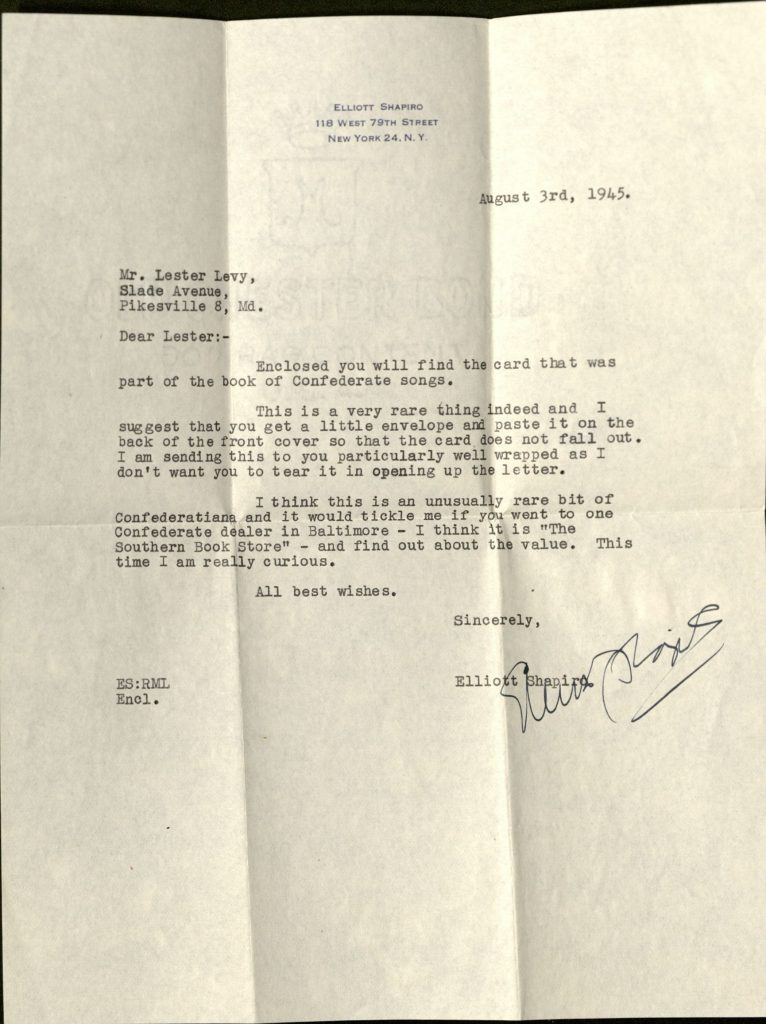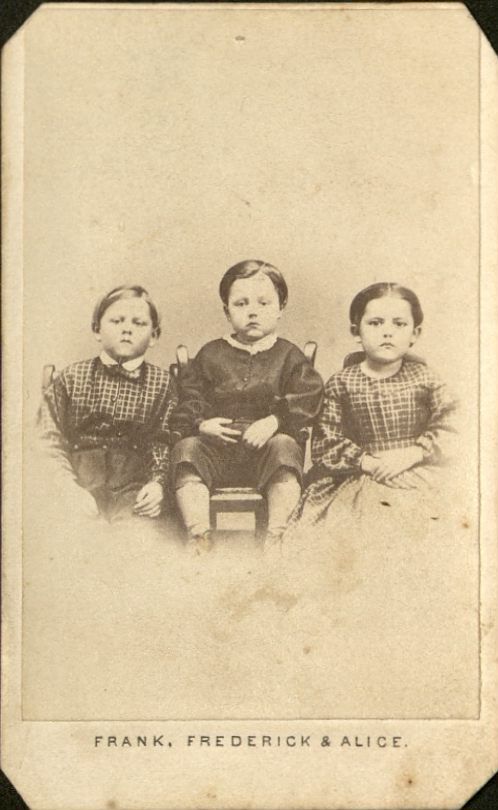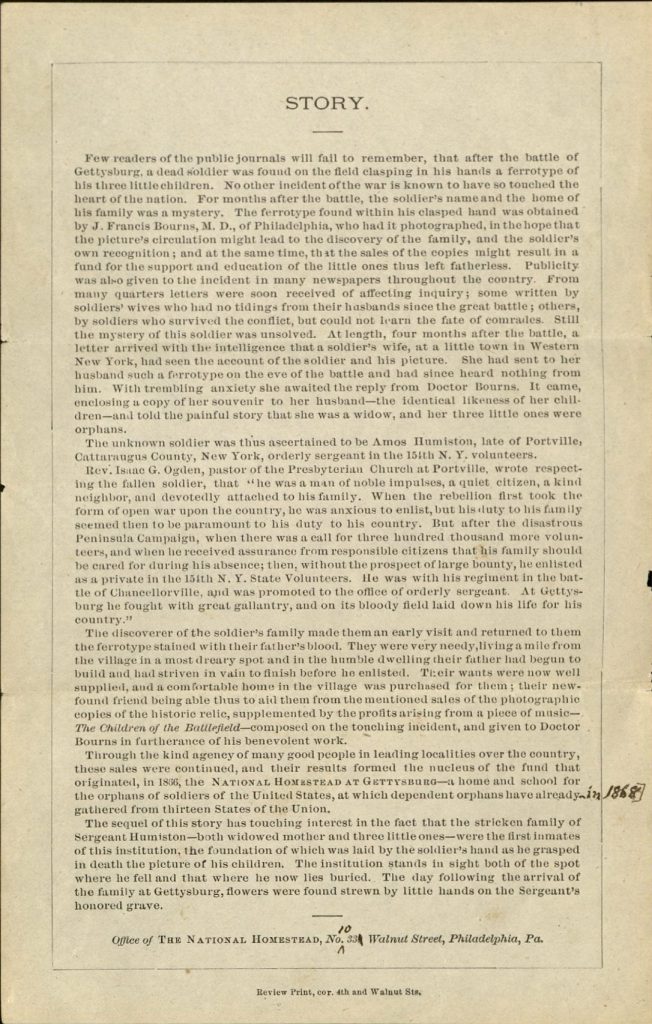The Lester Levy Sheet Music Collection, a collection of over 30,000 digitized songs, is one of Special Collections’ most frequently consulted resources. While the collection has been the subject of musicological research for decades, a new component of the collection has recently been re-discovered: ephemera. While this ephemera is noted in Lester Levy’s original card catalogs, the items themselves have not yet been catalogued or digitized– some of the historic objects found so far include an admittance card to a Confederate aid society and a fundraising photograph for three children whose father fell in the Battle of Gettysburg.
This card admitted one member to a lecture at the London Confederate Aid Association, a short-lived organization founded in 1862 near the American embassy in London. The association aimed to provide moral and financial support to the Confederacy, releasing a lengthy pamphlet titled “An address to the British public and all sympathizers in Europe, from the London Confederate States Aid Association.” The pamphlet accuses the Northern states of a slew of atrocities against the South, while lamenting the loss of imports produced by enslaved people: “no other country can produce so good, cheap, and large supply as the old, well-tried fields of the Confederate States of America.”
Excerpts of the association rules include:
1. That this association shall be called the “London Confederate States Aid Association;” formed for the purpose of giving countenance and support to the Confederate States of America in their struggle to establish and maintain their independence.
2. That this association believes the present war in America to be an unholy and an unjust war, and that the Washington government have no just cause or constitutional grounds of war against the south.
3. That this association shall consist of an unlimited number of members.
(Items 4-12 can be found here)
13. That while this association consists principally of Englishmen sympathizing with the Confederate States of America, as well as with the sufferings of their own countrymen, it earnestly solicits the contributions, co-operation, and support of all.
14. That all moneys received by the association shall be appropriated for purchasing and forwarding to the Confederate States of America the materials which, in the judgment of the association, shall be considered the best calculated to enable them to carry on the war, and to bring their present protracted struggle to a successful issue.
The organization is also mentioned by George Thompson in two letters to William Lloyd Garrison on December 5, 1862 and December 12, 1862. According to Thompson, “The meeting of the Confederate States Aid society held the night before last was a miserable affair. The person they employ as lecturer will not allow a question to be put to him nor any remark to be made. A policeman is in readiness to remove any person who may attempt to speak.” The association met weekly on Wednesday evenings, but appears to have ceased functioning by 1863.
The card was found and sent to Levy by his colleague Elliott Shapiro, a music dealer and author. In this accompanying letter, Shapiro suggests Levy “get a little envelope and paste it on the front cover so that the card does not fall out” (we’re glad he didn’t).
This photograph card is identified as “a copy of the Ambrotype found in the hands of Sergeant Humiston of the 154th NY Volunteers as he lay dead on the Battlefield of Gettysburg.” Identifying the three children as Frank, Frederick, and Alice, the proceeds of the card’s sale are “appropriated to the support and education of the Orphan children” (the children were in fact not orphans; they remained with their mother according to the accompanying pamphlet).
The accompanying pamphlet, published by the Office of the National Homestead in Philadelphia c. 1868, details the story of Sergeant Humiston and the resulting success of the fundraiser for his children. According to the pamphlet, the donations were able to fund “a home and school for the orphans of soldiers of the United States.” Also employed in these fundraising efforts was a song published with the photograph on the cover.
Keep an eye out for more of these ephemeral finds in the future! All of these items can be found on the Levy collection website under the subject heading “Collection Ephemera.”




